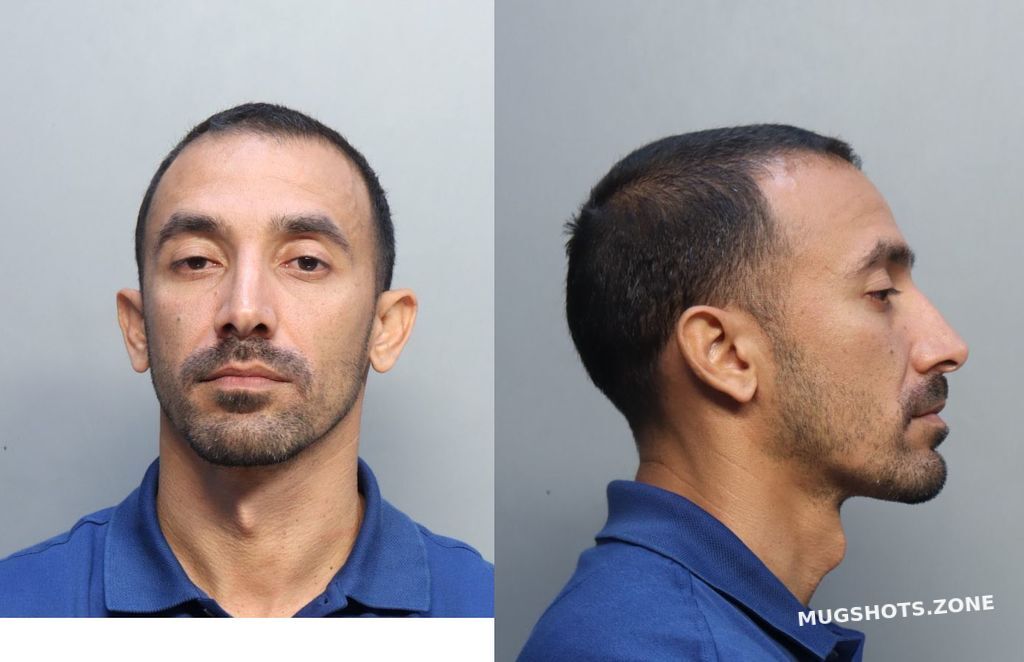Let’s face it, folks, the term “Miami Dade Mugshot Zone” might sound like some mysterious world where secrets hide in plain sight—but it’s actually way more important than that. If you’ve ever found yourself scrolling through mugshots online, maybe out of curiosity or even necessity, you’re not alone. This is a real thing, and it’s tied directly to public records, legal processes, and the transparency of law enforcement in Miami-Dade County. Whether you’re researching someone, checking your own records, or just plain curious about how this system works, we’ve got you covered.
So, here’s the deal—Miami Dade Mugshot Zone isn’t just a random collection of photos or names. It’s a database that provides access to public arrest records, mugshots, and related information. Why does this matter? Well, because it’s part of the larger picture of how law enforcement operates in one of the most vibrant and diverse counties in the U.S. Let’s dive into what this means and why it could affect you—or someone you know.
Before we get too deep into the nitty-gritty, let me just say this: the world of mugshots isn’t as glamorous as it sounds. It’s not all about celebrity arrests or viral moments. It’s about real people, real situations, and the importance of understanding the legal system. Stick around, because we’re breaking it all down for you, step by step. No fluff, just the facts—and maybe a little humor along the way.
Read also:Emmanuel Acho Married The Inside Scoop You Didnrsquot Know About
What Exactly is the Miami Dade Mugshot Zone?
Alright, let’s start with the basics. The Miami Dade Mugshot Zone refers to an online platform or database where arrest records, mugshots, and other related information are made available to the public. It’s essentially a repository of data maintained by local law enforcement agencies in Miami-Dade County. But here’s the kicker—it’s not just for law enforcement officials. Regular people like you and me can access this information too.
Why is this important? Think about it—having access to public records empowers individuals. Whether you’re vetting a potential tenant, checking on a business partner, or even keeping tabs on your own criminal history, these mugshot zones provide a level of transparency that wasn’t always available. It’s like peeking behind the curtain of the legal system.
How Does the System Work?
When someone gets arrested in Miami-Dade County, their information—along with a mugshot—is typically entered into the system. This includes details like name, date of birth, charges, and sometimes even bail information. These records are then uploaded to the Miami Dade Mugshot Zone, where they become accessible to the public. Easy, right?
But here’s the thing—while it’s designed to promote transparency, there are rules and regulations in place to protect privacy. Not all information is publicly available, and there are steps in place to ensure that only relevant data is shared. It’s a delicate balance between openness and protecting individuals’ rights.
Why Should You Care About Miami Dade Mugshot Zone?
Here’s the truth—whether you realize it or not, this system can have a direct impact on your life. Imagine this scenario: you’re hiring a new employee, and you want to make sure they’re trustworthy. Or maybe you’re renting out your apartment and need to screen potential tenants. Having access to mugshot records can provide valuable insights.
But it’s not just about employment or housing. In today’s digital age, people often turn to these databases to investigate others—whether it’s a date you met online or a neighbor you’re not quite sure about. It’s a tool that offers peace of mind, but it’s also one that should be used responsibly.
Read also:Exploring Livvy Dunnes Journey Rising Star In The Spotlight
Common Uses of Mugshot Zones
Let’s break it down with some bullet points:
- Employment Background Checks: Employers often use mugshot zones to verify the criminal history of potential hires.
- Rental Property Screening: Landlords can check if tenants have a history of criminal activity.
- Personal Investigations: Curious about someone? A quick search might reveal more than you expected.
- Legal Research: Attorneys and law students use these databases to gather information for cases.
It’s not just about snooping—it’s about staying informed and making smart decisions.
How to Access Miami Dade Mugshot Zone
Accessing the Miami Dade Mugshot Zone is easier than you might think. Most of the time, all you need is an internet connection and a few basic details about the person you’re looking for. Here’s a step-by-step guide:
Step 1: Visit the Official Website
Start by heading to the official website of the Miami-Dade County Sheriff’s Office. They usually have a dedicated section for public records and mugshot searches. Make sure you’re on a secure, trusted site—there are plenty of fake databases out there, so be careful.
Step 2: Enter Search Criteria
Once you’re on the site, you’ll be prompted to enter some basic information. This could include the person’s full name, date of birth, or even case number if you have it. The more specific you are, the better your results will be.
Step 3: Review the Results
After submitting your search, you’ll get a list of matching records. Each record will include a mugshot (if available), arrest details, and other relevant information. Take your time reviewing the data to ensure accuracy.
Controversies Surrounding Mugshot Zones
Now, let’s talk about the elephant in the room—controversy. While mugshot zones offer transparency, they’ve also sparked debates about privacy and fairness. Some argue that making mugshots publicly available can lead to unfair stigma, especially for individuals who were arrested but never convicted.
Others worry about the potential for abuse. For example, unscrupulous websites have been known to charge people money to remove their mugshots from public view. It’s a practice that raises ethical questions and highlights the need for better regulation.
What’s Being Done to Address These Issues?
Thankfully, lawmakers and advocacy groups are taking steps to address these concerns. Many states, including Florida, have enacted laws to protect individuals from exploitation. For example, some sites are required to remove mugshots upon request, especially if the person was never convicted of a crime.
But the conversation is ongoing, and it’s important for everyone to stay informed. After all, the goal is to strike a balance between transparency and fairness.
Data and Statistics: Understanding the Impact
Let’s dive into some numbers to give you a clearer picture of how mugshot zones affect everyday life. According to recent studies, millions of people access public arrest records each year. That’s a lot of searches—and it shows just how important these databases have become.
But here’s the kicker—many of those searches are conducted by employers, landlords, and even romantic partners. It’s a trend that reflects our growing reliance on digital tools to make informed decisions. And while it’s certainly useful, it also raises questions about how we use this information.
Key Statistics to Know
- Over 70% of employers conduct background checks on potential hires.
- Nearly 50% of landlords use mugshot zones to screen tenants.
- More than 30% of individuals admit to using these databases for personal investigations.
These numbers paint a clear picture of how integral mugshot zones have become to our daily lives.
Legal Implications of Using Mugshot Zones
Before you dive headfirst into the world of mugshot searches, it’s important to understand the legal implications. While public records are, well, public, there are still rules about how they can be used. For example, using mugshot information to discriminate against someone based on their arrest record could land you in hot water.
Additionally, there are laws in place to protect individuals from exploitation. If you’re considering using a mugshot zone for personal or professional reasons, make sure you’re familiar with the rules—and always use the information responsibly.
Best Practices for Responsible Use
Here are a few tips to keep in mind:
- Verify the Source: Always use official, trusted databases when conducting searches.
- Respect Privacy: Avoid sharing mugshots or personal information without consent.
- Be Mindful of Bias: Don’t let mugshot information cloud your judgment or lead to unfair assumptions.
By following these guidelines, you can ensure that your use of mugshot zones is both ethical and effective.
Conclusion: What You Need to Know
In conclusion, the Miami Dade Mugshot Zone is more than just a database—it’s a tool that empowers individuals with information. Whether you’re conducting a background check, screening tenants, or simply staying informed, this system offers valuable insights into the legal process in Miami-Dade County.
But remember—with great power comes great responsibility. Use this information wisely, and always be mindful of the potential impact on others. And if you have questions or concerns, don’t hesitate to reach out. Share your thoughts in the comments, or check out our other articles for more tips and insights. Stay informed, stay curious—and most importantly, stay safe.
Table of Contents
- What Exactly is the Miami Dade Mugshot Zone?
- Why Should You Care About Miami Dade Mugshot Zone?
- How to Access Miami Dade Mugshot Zone
- Controversies Surrounding Mugshot Zones
- Data and Statistics: Understanding the Impact
- Legal Implications of Using Mugshot Zones


